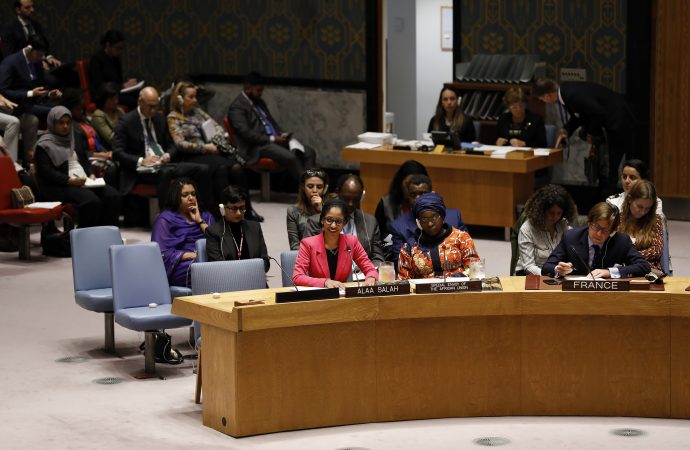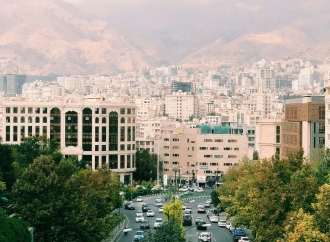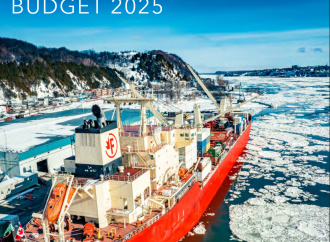Women are clearly underrepresented at senior levels in diplomacy. Only 23.4% of the world’s ambassadors in 2024 were women, according to the GenDip project at the University of Gothenburg. While there may be a better gender balance at lower and mid-career levels, women face obstacles that are preventing them from advancing to senior levels or even from remaining in diplomatic service. The LSE IDEAS ‘Women in Diplomacy (WiD) project was launched in 2022 with the mission to improve women’s representation and leadership in diplomacy, foreign policy, and policy-making by identifying barriers and enablers to women’s advancement in national ministries, diplomatic services and international organisations. LSE IDEAS is a foreign policy think tank at the London School of Economics, bringing together academic and policy communities. The project is led by Professor Karen E. Smith, Professor of International Relations at the London School of Economics and Political Science, and by Marta Kozielska of LSE IDEAS.
On 11 September 2025, we presented the project’s findings and recommendations to a group of students, staff, and practitioners at the University of Ottawa. Our visit was made possible by the LSE’s engagement and partnerships fund, and we were kindly hosted by Professor Rebecca Tiessen and joined by Ambassador Dr. Lilly Nichols.
To better understand the barriers and enablers to women’s representation in diplomacy, we have engaged in discussions with practitioners online (through podcasts, twenty of which have so far been recorded) and offline (through dialogues and roundtables); held public events; and built partnerships with women’s diplomatic networks, national foreign ministries, and international organisations. In June 2024, we published an inaugural report on ‘Strengthening the Representation of Women in Diplomacy: Challenges and Policy Solutions’.
That report set out the many obstacles that women can face in their diplomatic careers: the familiar ‘glass ceiling’ (women are prevented from reaching senior levels of an organisation); ‘glass walls’ (women predominate in ‘soft’ sectors such as humanitarian aid or human rights, and may thus not gather the full range of expertise and experiences needed to advance in their careers); and ‘glass cliffs’ (women’s leadership is made possible only when an organisation faces difficulties, such as budgetary crises). In addition, women face gendered perceptions of their capabilities (and even their appearance), outright sexism and sexual harassment, and above all inflexibilities in the workplace, such as the challenges of inadequate childcare, trying to strike a work-life balance, and insufficient support for ‘trailing partners’. Such challenges are even greater for women from underrepresented groups.
But the report also recounts practices that can ameliorate those barriers: supportive career development practices such as fair and balanced recruitment, mentoring, and women’s support networks. Strong, clear and consistent leadership can set the tone in an organisation, ensuring there is a focus on gender equality and supporting the advancement of women. Leaders can also reiterate the benefits of diversity in decision-making: decisions are fairer and outcomes can reach wider constituencies. The report then makes a number of recommendations to implement such practices and norms within foreign ministries and international organisations.
The report itself was a first step to understanding and uncovering the trends and potential solutions to advancing women’s representation and voices in diplomacy and foreign policy. We are now engaged in a process of broader consultation with diplomats and interested audiences in several cities around the world. The insights and recommendations emerging from these dialogues will directly shape the updated edition of the Women in Diplomacy report, to be published in March 2026. This edition will not only reflect new perspectives and lived experiences from diverse diplomatic and policy contexts but also offer actionable, evidence-based guidance for institutions and governments seeking to advance gender equality in international affairs.
Some of the issues that the report is likely to highlight include:
- Concrete solutions to the challenge of the work-life balance for all diplomats (male or female) such as: provision of childcare; enabling couples to serve abroad together; negotiating with host countries to enable trailing partners to work in country; replacing dinners and evening receptions with lunches and other events during working hours; ensuring that all staff work regular office hours; building flexibility into diplomatic careers such as enabling ‘on-off’ ramps so that diplomats can spend more time in one location.
- The lack – and importance – of mandatory training on gender and unconscious bias.
- Boosting formal and informal mentoring schemes, with proposals on how such schemes could work for all diplomats.
- Encouraging networks (and ensuring that networks consult their work and outputs within ministries feeding into the work and culture of the institution).
- Ensuring that work is a safe space for women, and ways in which harassment online and offline, including in conference spaces, should be combatted.
- The importance of gathering disaggregated data which should include collection and analysis of more granular data about women’s careers and distribution across sectors and levels.
Our work is ongoing. The second edition of the report will dive deeper into the challenges but, more importantly, it will highlight ways in which proposed solutions can be implemented and done so durably and effectively. Diversity in decision-making in diplomacy and foreign policy will enhance work culture, improve outcomes, and better serve impacted communities. The recommendations we make intend to introduce these changes in foreign ministries and international organisations. Keep in touch to be informed about the launch of the report:









